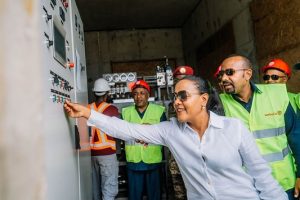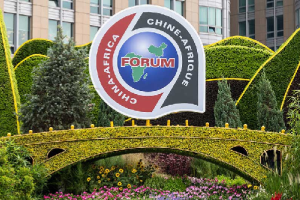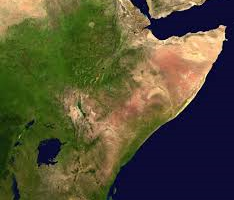
A few days ago millions of Ethiopians ran for peace under the slogan ‘Peace for All and All for Peace’. They reasserted the importance of peace everywhere not only in our country but also abroad because the lack of peace has been creating immense challenges in the entire world. We have seen in the past one and a half years the situation in Sudan a close neighbor immersed in some sort of conflict which has been costing the country thousands of deaths, vast destructions and millions of citizens displaced from their homes internally as well as to neighboring countries including Ethiopia. But what is perplexing is that Ethiopia itself has displaced people due to certain internal factors that have not been settled once and for all.
In his recent intervention in parliament, Prime Minister was asked about the efforts his government was exerting to bring back total peace to the country referring to the armed groups that have been creating uncertain conditions in the country, hampering the development ventures of the nation, creating unease among the population here and there. This was made by the parliamentarians of the armed groups in certain pockets of Oromia, Amhara and other localities. He answered that his government was doing everything in its capacity to bring all dissenting forces to a negotiating status wherever they might be and sit down and discuss their grievances and claims with the authorities. He noted that the National Dialogue Commission was established to take care of all the outstanding issues that torment or create unease among communities. The premier has said on several occasions that the doors for negotiations and peace talks are wide open for all forces in the country to present their woes and discuss the solutions with all relevant parties in a peaceful manner.
The government has been exerting relentless efforts to bring every aggrieved party to the table and talk because only through a peaceful exchange of ideas and suggestions could there be the possibility of reaching a viable and permanent agreement that would satisfy every party. For instance, it is the lack of open and frank talks between the two warring parties in the civil war in Sudan that is destroying the country. There are no alternatives to peace talks and negotiations to avert any war or conflict anywhere in the world.
We have seen the conflict between Russia and Ukraine because there was not the necessary discussion and talks about the positions of both parties. We now see even more serious conflicts that have caused immense destruction and tremendous losses of life in Gaza and Israel due to the incapacity of the two parties, Israelis and Palestinians, to sit down and talk to resolve their perennial problems. In all these cases of war zones, there are also the direct or indirect interventions of other foreign forces which have not done enough to stem the tide of wars. Some have an interest in the hostilities going on, either politically or economically.
The case of Ethiopia may not have reached the proportions of the other cases of conflicts we have seen above but all the same, the need to settle every kind of potential security issue is imperative for a country such as ours which is highly engaged in a war against poverty and backwardness. Any move that blocks these efforts is undesirable for the people of Ethiopia because there is no time to waste in this highly competitive world due to unresolved issues between communities and the central government.
In the premier’s remarks in the parliament a week or so ago, the only solution to problems we have in Ethiopia is to settle them with negotiations and peace talks because getting into the bushes and engaging in armed conflict with the government would not bear any fruits because no one can seize power in Ethiopia through armed struggle as it once used to be. Today the situation is much different than years ago and people cannot stand for these groups who have created a lot of pain and losses in their attempts to destabilize communities blocking the efforts of the government to introduce new development projects and implement them.
The government says that these forces that are trying to draw attention from the communities for support have not realized that people are no longer interested in having their lives disrupted due to the violence these forces use to attract them and drag them into hostilities while the government, on the other hand, is giving them every opportunity to take part in development projects and translate them into reality. These anti-peace forces may create some inconvenience, particularly to the communities who live near them but cannot have the impact that they hope to bring in the country as a whole. In short, it is mainly a waste of time and resources to try to undo this government by force, the premier has told parliament and of course, the forces that are engaged in the mentioned anti-peace activities are doomed.
Ethiopia has had its share of violence, hostilities and wars and even most recently it is worth recalling the war in the north that ended in the futile destruction of lives and property until the Pretoria Peace Deal that resulted in the cessation of hostilities. We have heard Premier Abiy many times say that it was not necessary to resort to armed conflict knowing that it does not settle issues permanently. A civil war in a country never has a winner and a vanquished because, in the end, both lose. The win-win solution would be to settle the disputes in peaceful negotiations and talks or discussions involving every party to clear matters and reach a compromise.
In a country such as Ethiopia with lots of unsettled issues of the past and with so many interested parties involving various groups of communities speaking various languages and having different beliefs and with its geopolitical position in the Horn of Africa being crucial, it is natural that there are multiple challenges and multiple actors that try to fish in the troubled waters. Ethiopia is a major actor in the international sphere as well because of its position in African issues and its diplomatic activities across the years beginning from its contribution to the formation of the League of Nations and the United Nations to the hosting of the headquarters of the AU.
Ethiopia’s historical past is clearly a positive influence in today’s world and the country is proud of its past. But today it is a country trying to take on against poverty and forces that try to destabilize it. It realizes that without peace in every part of the country, it would be very difficult to meet all the objectives of this government and extricate citizens from the abyss of poverty. The war on poverty needs concerted efforts of every citizen and all those who try to disrupt these activities will have to be removed because they are not on the side of their compatriots.
The National Dialogue Commission was founded to discuss every fundamental issue in the country in various venues and try to have a neat and clear picture of the communities in Ethiopia and deliberate together on what sort of solutions we should be directed to. Any future government in the country cannot rely on force to stay in power but based on law and constitutional provisions alone. The idea of seizing power by force must be done away with once and for all.
We are in times which are guided only by peaceful campaigns presenting new ideas and thoughts and engaging in free, fair, transparent and credible elections carried out across the entire country. The space of coming to power through violent means must not only be condemned but also resisted by every force available. Peaceful presentations of ideas and issues are the only means to carry on with normal government activities. That was also why millions of citizens ran for peace a few days ago underlining their desire not to be involved in any violent activities that disrupt their day-to-day lives. In the absence of reliable peace, they know that life in the country would be aborted everywhere. We do not have to go very far to see what conflicts are. Suffice it to see what has been going on in neighboring Sudan.
The situation in the Middle East is another glaring example of what conflicts produce. Ethiopia does not repeat the mistakes that it may have committed in the past and if there have been unjust actions or injustices, it is time to cope with them by admitting them and drawing a line that will not be crossed in the future but at the same time move ahead with new ideas and projects so that the exigencies of the times are satisfied or met with the activities necessary. Referring to past history by undermining the present and blocking the future can only be harmful.
History cannot be relived because it is already past but we need to learn from it and not subject ourselves to the mistakes committed in the past. This is where most political forces or parties commit a serious error or do it purposely in an attempt to achieve political gains. But these are shortsighted views and ideas and the only remedy is to look forward with valid ideas that are commensurate with the needs of modern day life. Peace has no alternatives because everything we do is conditioned and determined by it. It is something that we all need and cherish and hence we all have the duty and responsibility to protect and preserve it.
BY FITSUM GETACHEW
THE ETHIOPIAN HERALD SATURDAY 13 JULY 2024





